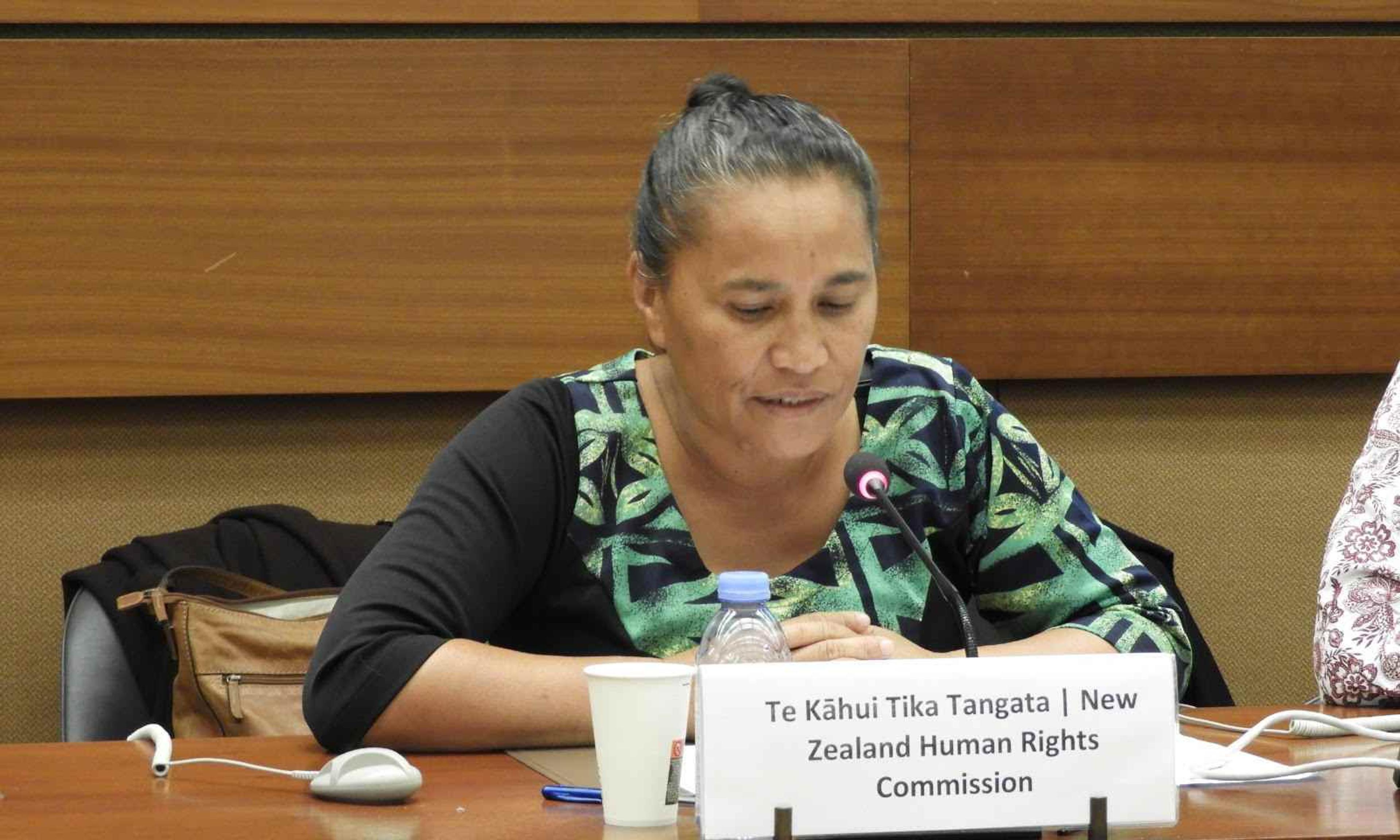

Saunoamali'i Dr Karanina Sumeo is the Acting Chief Human Rights Commissioner.
Photo/File
Māori Health Authority's rushed disestablishment violates treaty says Human Rights Commission
Acting Human Rights Chief Commissioner says the Pae Ora amendment bill, which has disestablished the Māori Health Authority, violates Māori self-determination in connection to the promises made in the Treaty of Waitangi.




‘Differently ordered brains’: ADHD changes bring hope and hurdles for Pacific families

Fiji court rules PM acted unlawfully in sacking anti-corruption chief


Visa glitch triggers duplicate charges for Rarotonga visitors


‘Differently ordered brains’: ADHD changes bring hope and hurdles for Pacific families

Fiji court rules PM acted unlawfully in sacking anti-corruption chief
The Acting Human Rights Chief Commissioner says the government's move to remove Te Aka Whai Ora, or the Māori Health Authority, dishonours the Treaty of Waitangi.
The Pae Ora Amendment Bill which abolished the Māori Health Authority, has passed its third reading under urgency, leading some to protest against the move as they see it as a violation of self-determination for Māori.
Acting Chief Commissioner Saunoamali'i Dr Karanina Sumeo shares the same sentiment saying that the Authority's hastened disestablishment violates agreements in the Treaty of Waitangi.
"The right to self-determination was guaranteed to our tangata whenua under the Treaty of Waitangi and we need to do that," Saunoamali'i Dr Karanina Sumeo says.
Speaking to RNZ Health Minister Dr Shane Reti says the "narrow bill" meets their hundred-day commitment of delivering better health outcomes.
"While the particular version of the dream that the Māori Health Authority laid out is coming to an end today, I want to paint a different dream," Reti says.
"One that will be outcomes driven, providing greater devolved decision-making that will deliver care as close to the home and the hapū as possible."
He says he wants to keep the organisational expertise in the Māori Authority, asking staff to guide him in rowing "a different waka towards better health outcomes".
Te Kāhui Tika Tangata or the Human Rights Commission pointed out that the Tribunal have emphasised the importance of tino rangatiratanga, or self-determination in addressing health inequities for Māori.
They referred to Harvard University's research which found indigenous self-determination achieves better outcomes for indigenous peoples.
During the United Nations five-year human rights review of New Zealand last week, Saunoamaali'i said that "Māori rights remain vulnerable to the political climate of the day".
She says there had been repeated recommendations for the Crown and Māori to determine the appropriate constitutional protections of Te Tiriti o Waitangi.
"We are concerned that the new government has agreed to remove, review or repeal numerous policies and laws, such as the Māori Health Authority, that provide for Māori," Saunoamaali'i says.
Māori have long called for the acknowledgement of the treaty's Māori text, hence why slogans like Toitū Te Tiriti highlight the Māori word for "treaty" as a signifier of the different agreements and expectations between the Treaty's Māori and English texts.
Saunoamali'i says the Authority's disestablishment is another knot in the long history of New Zealand failing to honour the Treaty.
She also says the current bill of rights does not protect the right for Māori to practice self-determination which needs to change.
"That treaty protected the rights of our Māori brothers and sisters to their land, rights of their assets and resources and to continue to govern themselves," she says.
"Over time we know that was not honoured. Lots of land was taken from tangata whenua and we know in the Pacific that without our land we're lost so we can empathise with our cousins.
"We made a strong call to the United Nations to support our call for the treaty to be recognised in law and for the rights of our tangata whenua to be upheld as it was agreed in 1840."
Watch the full interview via 531pi's Facebook page below: